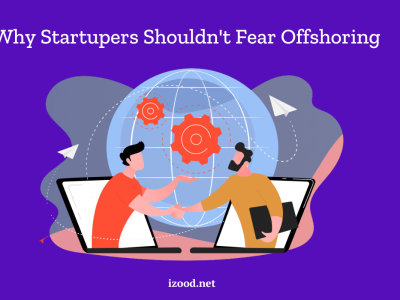In the ever-evolving landscape of digital marketing, search engine optimization (SEO) has become a buzzword that seems to be indispensable for every business striving to thrive in the online realm. However, is SEO truly a one-size-fits-all solution?
Contrary to popular belief, there are circumstances where businesses might not necessarily need to invest heavily in SEO, at least not immediately. In this article, we will explore the types of websites that can do without SEO as well as the conditions under which businesses can postpone or even forego search engine optimization.
The SEO Imperative: Industries That Rely Heavily on Search
Before delving into the scenarios where a business might not need SEO, it’s essential to recognize the industries that heavily rely on search engine optimization for their survival and growth. These sectors leverage it as a primary means to attract, engage, and convert customers:
- E-Commerce and Retail
In the world of online shopping, visibility is key. E-commerce businesses depend on SEO to rank high in search results, ensuring that potential customers find their products easily. The competition is fierce, and without a solid optimization strategy, e-commerce websites risk being overshadowed by their competitors.
- Local Services
From restaurants to plumbing services, local businesses thrive on local SEO. When potential customers are searching for nearby services, being easily discoverable on search engines can be the difference between success and failure for these businesses.
- Content and Media
Blogs, news websites, and online publications heavily rely on search engine optimization to drive traffic and maintain their relevance. Creating high-quality content is not enough; SEO ensures that the content reaches the intended audience.
- Tourism and Hospitality
Hotels, travel agencies, and tour operators rely on SEO to attract travelers looking for their next destination. A strong online presence is crucial to capturing the attention of potential tourists and providing them with the information they need.
- Cannabis Industry
In recent years, the cannabis industry has emerged as a significant player in the digital landscape. As legal restrictions around cannabis have evolved, many have turned to promoting their cannabis business online with SEO. Whether it’s dispensaries, online retailers, or cannabis-related educational platforms, search engine optimization plays a vital role in connecting businesses with their target audience in this burgeoning industry.
When SEO Might Not Be a Priority
While SEO undoubtedly plays a significant role in digital marketing, there are instances where businesses can consider postponing or deprioritizing their optimization efforts. Let’s explore some scenarios where this might be the case:
- Early-Stage Startups
When a new business is just getting off the ground, focusing solely on SEO might not be the most effective use of resources. In the initial stages, startups often need to concentrate on product development, establishing a brand identity, and creating a loyal customer base. Once these foundational elements are in place, they can then shift their attention to startup SEO.
- Niche and Exclusive Markets
In some industries, businesses cater to a highly specialized and exclusive clientele. These markets often rely on referrals, word-of-mouth, and targeted marketing efforts rather than broad SEO strategies. For instance, luxury brands and bespoke services may find their audience through curated events, partnerships, and personalized outreach.
- Limited Online Presence
Some businesses, especially those with a predominantly offline presence, may not derive significant benefits from SEO efforts. If a business’s target audience does not actively use search engines to find products or services, the return on investment for search engine optimization might be minimal.
- Resource Constraints
Small businesses with limited budgets and manpower might find it challenging to compete in the saturated SEO landscape. Instead of spreading themselves thin, these businesses might opt for alternative marketing channels, such as social media marketing or influencer collaborations, which can yield quicker and more direct results.
- Temporary or Seasonal Businesses
Certain businesses operate on a seasonal basis or are tied to specific events. For example, a business that sells Halloween costumes may experience a surge in demand only during a certain time of the year. In such cases, investing heavily in SEO might not be a priority, as the benefits may not be sustainable throughout the year.
Postponing SEO: A Calculated Approach
While the scenarios mentioned above provide valid reasons for businesses to delay or minimize their SEO efforts, it’s crucial to approach this decision with a strategic mindset. Postponing SEO doesn’t mean neglecting it altogether; rather, it’s about prioritizing other aspects of business development before fully diving into search engine optimization. Here’s a strategic approach to consider:
- Lay the Foundations: Before actively pursuing SEO, ensure that your business has a clear brand identity, a well-designed website, and a compelling value proposition. These elements create a solid base with which you can contact the best SEO companies and start developing a strategy.
- Research and Strategize: Use the time gained from postponing SEO to conduct thorough research on your target audience, competitors, and industry trends. Develop a comprehensive SEO plan that aligns with your business goals and audience behaviors.
- Content Development: Craft high-quality, relevant, and engaging content that speaks directly to your target audience. This content will serve as the cornerstone of your SEO efforts once you decide to invest in them.
- Build Relationships: Focus on building relationships within your industry, both online and offline. Collaborate with influencers, attend industry events, and participate in relevant forums or communities to increase your brand’s visibility.
- Monitor and Optimize: Even if you’re not actively pursuing SEO, it’s important to keep an eye on your website’s performance and search engine rankings with SEO tools. This will provide valuable insights into how your audience is finding you and whether your existing efforts are yielding results.
The Final Verdict
In a digital landscape dominated by search engines, SEO undoubtedly holds immense value for businesses aiming to establish a strong online presence. However, it’s important to recognize that it is not a one-size-fits-all solution. There are industries and circumstances where businesses can postpone or deprioritize this type of online promotion while focusing on other essential aspects of growth.
Before deciding to delay the optimization, businesses should carefully evaluate their target audience, industry dynamics, and available resources. A well-informed and strategic approach will ensure that, when the time is right, businesses can seamlessly integrate SEO into their overall marketing strategy and reap the benefits of improved online visibility, organic traffic, and sustainable growth.







